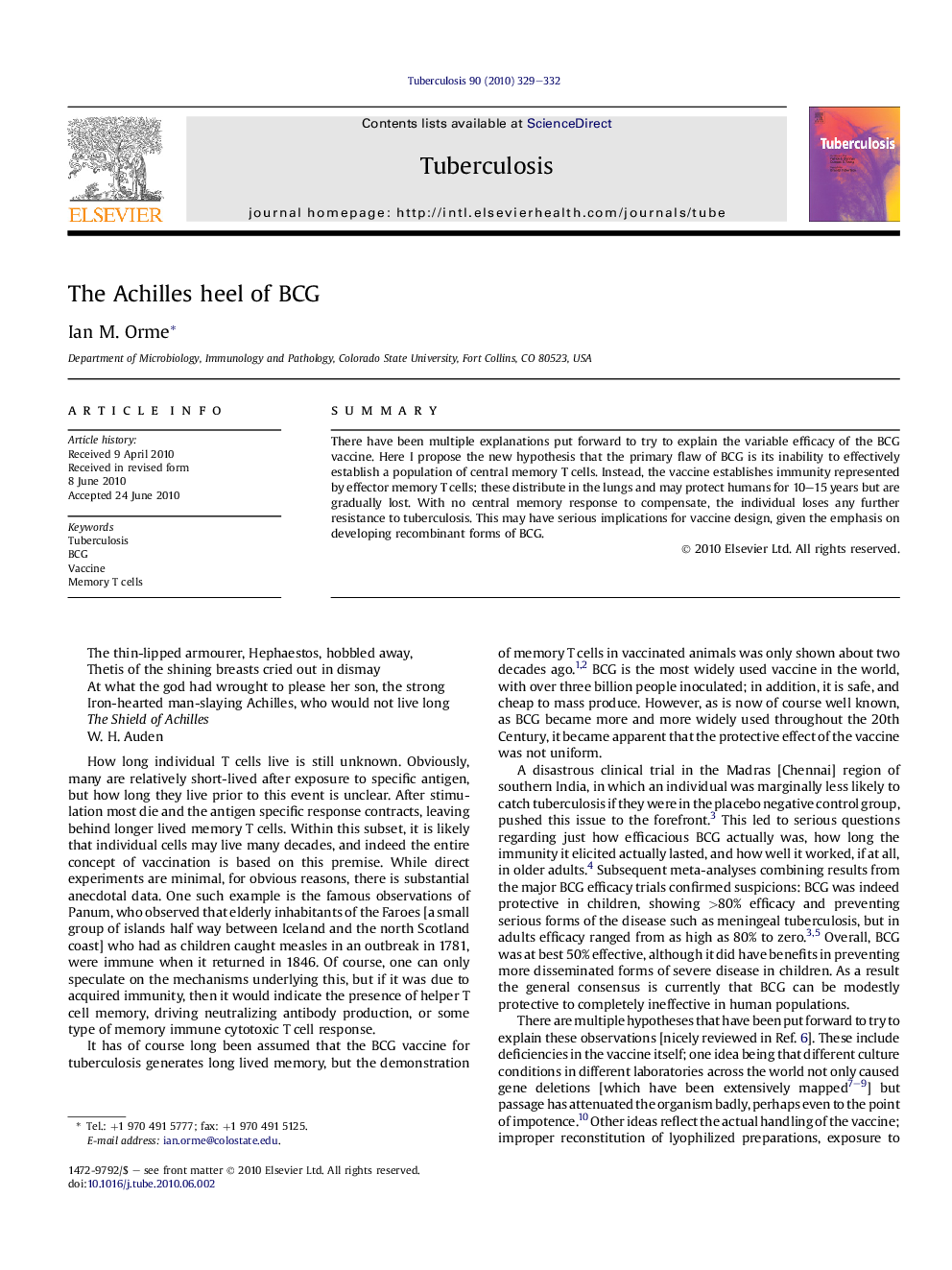| Article ID | Journal | Published Year | Pages | File Type |
|---|---|---|---|---|
| 2401676 | Tuberculosis | 2010 | 4 Pages |
Abstract
SummaryThere have been multiple explanations put forward to try to explain the variable efficacy of the BCG vaccine. Here I propose the new hypothesis that the primary flaw of BCG is its inability to effectively establish a population of central memory T cells. Instead, the vaccine establishes immunity represented by effector memory T cells; these distribute in the lungs and may protect humans for 10–15 years but are gradually lost. With no central memory response to compensate, the individual loses any further resistance to tuberculosis. This may have serious implications for vaccine design, given the emphasis on developing recombinant forms of BCG.
Keywords
Related Topics
Life Sciences
Immunology and Microbiology
Applied Microbiology and Biotechnology
Authors
Ian M. Orme,
